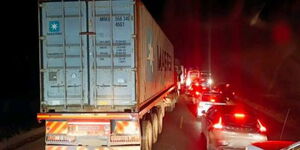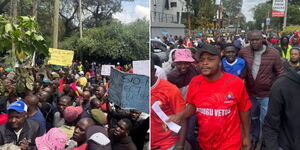Kenyans who served in the American military and were deported from the United States for committing various crimes could find their way to the foreign country if a push by several America-based humanitarian nonprofits succeeds.
The League of United Latin American Citizens (LULAC), a civil rights organization, is at the forefront of efforts to bring back 400 foreign-born veterans of the U.S. armed forces who lost their lawful immigration status after being found guilty of various crimes. More than 65 have already been brought back on humanitarian parole.
In a statement issued Tuesday, August 8, Danitza James, the chair of the LULAC Subcommittee for Deported Veterans, said that some of the veterans did not receive a fair hearing and were irregularly charged.
Ms. James, who also served in the US military, added that the deportations could have been avoided if the former soldiers, sailors, marines, and airmen had become American citizens while in the military.
She emphasised that the 400 officers deserve American citizenship since they had already been vetted and were working for America's national security.
Consequently, the organisation is attempting to make contact and provide legal resources to deported veterans in several countries, including Kenya.
"A lot of the veterans struggle after their service because of PTSD (Post-Traumatic Stress Disorder), traumatic events that happened, or substance abuse. If they are caught driving while intoxicated or with drugs or commit a felony, their military service is not considered; they are deported," Ms. James observed.
“In some cases, they were told their citizenship would be automatic, and that was not the case. Others didn’t apply because they were deploying or training. I served with a ‘green card’ (legal permanent residence), I was deployed twice to Iraq, and I was constantly training. When I left the military in 2006, I still had a green card,” James added.
Ms. James emphasised that affording citizenship-like treatment to foreign-born servicemen would mitigate their deportation risk.
The veteran lamented that needless deportations inflicted greater harm than good since the veterans were forced to separate from their families.
Additionally, she pointed out that when foreign-born veterans contest deportation mandates, their most favourable outcome often amounts to humanitarian parole, rather than a restoration to enduring legal status.
Humanitarian parole is provided to foreign nationals for temporary entry into the United States, grounded in emergencies, urgent humanitarian reasons, or notable public advantage.
"In some cases, they were told their citizenship would be automatic but that was not the case," James regretted.
On his part, Lorelei Horse Stands Waiting, the director of All Relations United, a nonprofit, opined that it is unfair for the country to allow foreign civilians to enter the country but at the same time block veterans.
Some of the circumstances that may lead to deportation from the US; include drunk driving, criminal offenses, and lack of documentation, among others.












